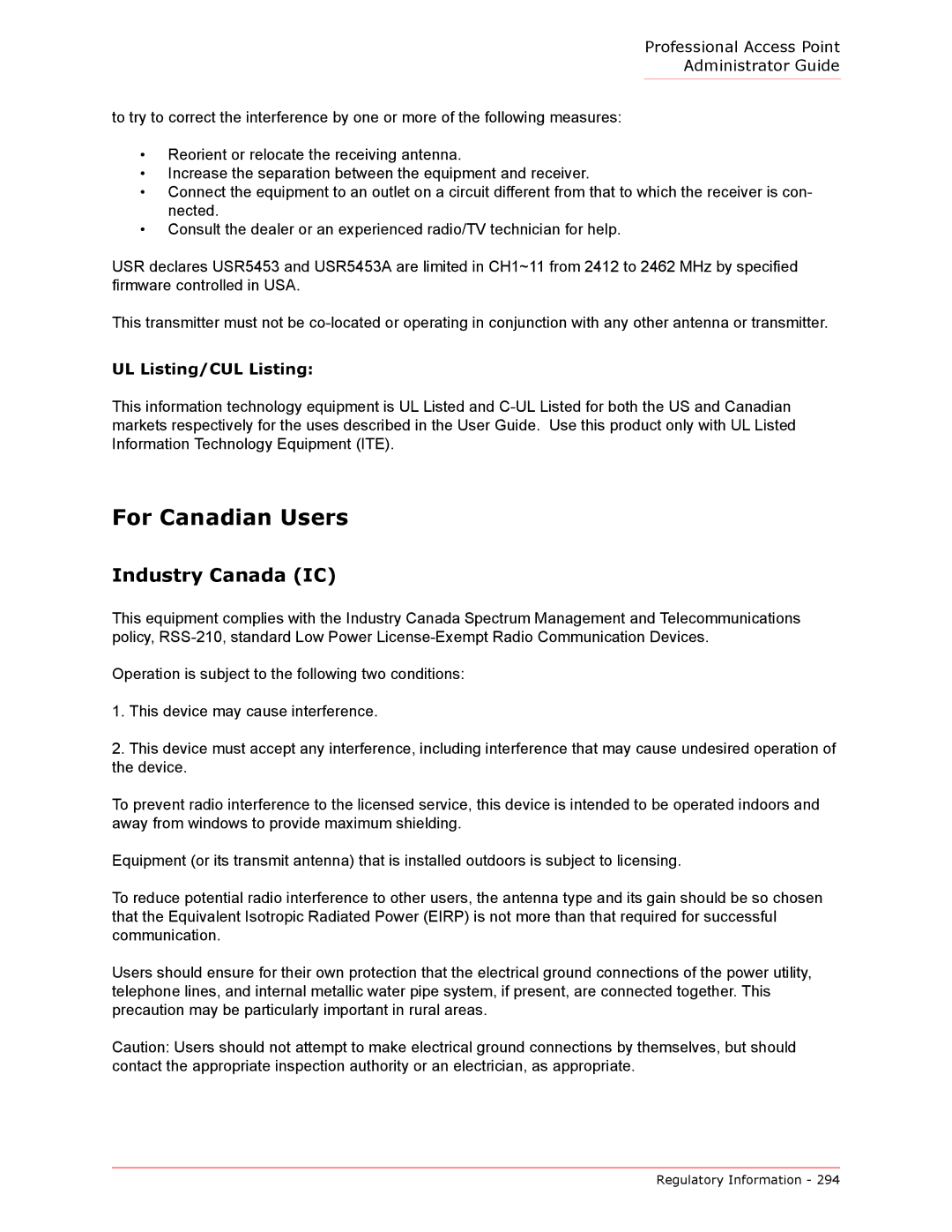
Professional Access Point
Administrator Guide
to try to correct the interference by one or more of the following measures:
•Reorient or relocate the receiving antenna.
•Increase the separation between the equipment and receiver.
•Connect the equipment to an outlet on a circuit different from that to which the receiver is con- nected.
•Consult the dealer or an experienced radio/TV technician for help.
USR declares USR5453 and USR5453A are limited in CH1~11 from 2412 to 2462 MHz by specified firmware controlled in USA.
This transmitter must not be
UL Listing/CUL Listing:
This information technology equipment is UL Listed and
For Canadian Users
Industry Canada (IC)
This equipment complies with the Industry Canada Spectrum Management and Telecommunications policy,
Operation is subject to the following two conditions:
1.This device may cause interference.
2.This device must accept any interference, including interference that may cause undesired operation of the device.
To prevent radio interference to the licensed service, this device is intended to be operated indoors and away from windows to provide maximum shielding.
Equipment (or its transmit antenna) that is installed outdoors is subject to licensing.
To reduce potential radio interference to other users, the antenna type and its gain should be so chosen that the Equivalent Isotropic Radiated Power (EIRP) is not more than that required for successful communication.
Users should ensure for their own protection that the electrical ground connections of the power utility, telephone lines, and internal metallic water pipe system, if present, are connected together. This precaution may be particularly important in rural areas.
Caution: Users should not attempt to make electrical ground connections by themselves, but should contact the appropriate inspection authority or an electrician, as appropriate.
Regulatory Information - 294
